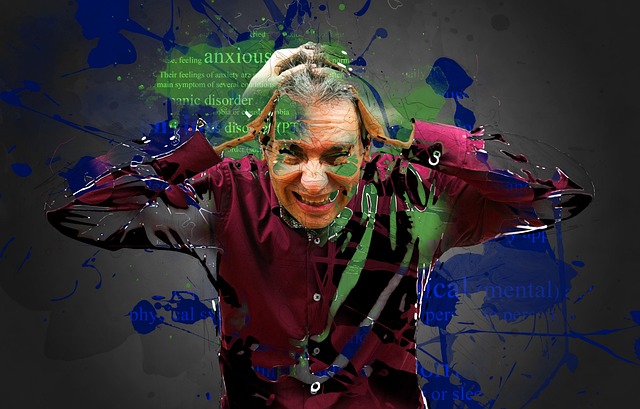In today's diverse society, mental healthcare practices like those offered by Longmont Couples Counseling Therapy (LCCT) must incorporate cultural sensitivity to support individuals from various ethnic, racial, and socioeconomic backgrounds. LCCT therapists play a crucial role in fostering inclusive care through cultural competency, addressing mental health issues respectfully and effectively. By understanding cultural nuances, they provide tailored crisis interventions, burnout prevention strategies, and encourage inner strength development, creating safe spaces where clients feel heard, validated, and empowered to heal and thrive. This culturally sensitive approach not only enhances therapy outcomes but also contributes to Mental Illness Stigma Reduction Efforts.
In today’s diverse society, cultural sensitivity is paramount in mental healthcare. The practice of Longmont Couples Counseling Therapy must adapt to navigate the complex tapestry of cultural backgrounds among its clients. This article explores the critical importance of understanding and respecting cultural diversity in therapy settings. We delve into the challenges, from unconscious biases to language barriers, and offer strategies for practitioners to enhance their culturally sensitive approach, ensuring effective care for all couples seeking support.
- Understanding Cultural Diversity in Mental Health Contexts
- – Defining cultural sensitivity and its relevance in mental healthcare
- – Exploring the diverse range of cultural backgrounds among clients seeking therapy
- Challenges and Barriers to Culturally Sensitive Practice
Understanding Cultural Diversity in Mental Health Contexts

In today’s diverse society, mental healthcare practices must embrace cultural sensitivity to effectively support individuals from various ethnic, racial, and socioeconomic backgrounds. Longmont Couples Counseling Therapy, for instance, serves a community rich in cultural diversity, requiring therapists to be adept at navigating these differences. Understanding cultural nuances is crucial when addressing mental health issues, as it ensures that interventions are not only effective but also respectful of individual and communal beliefs, values, and traditions. This involves recognizing the impact of systemic barriers, historical traumas, and cultural norms on a person’s mental well-being.
Therapists play a pivotal role in fostering inclusive care by incorporating cultural competency into their practices. This includes providing Crisis Intervention Guidance tailored to diverse populations, implementing Burnout Prevention Strategies for Healthcare Providers to maintain resilience in the face of these complex challenges, and encouraging Inner Strength Development among clients. By embracing this approach, mental health services can create safe spaces where individuals feel heard, validated, and empowered to heal and thrive.
– Defining cultural sensitivity and its relevance in mental healthcare

Cultural sensitivity in mental healthcare refers to the ability of practitioners to understand and respect the diverse cultural backgrounds, beliefs, and values of their clients. It involves recognizing that psychological issues and healing processes can be influenced by cultural factors, such as language, family dynamics, religious practices, and traditional healing methods. In Longmont Couples Counseling Therapy, for instance, therapists must be attuned to these nuances to provide effective and equitable care.
This sensitivity is crucial in addressing the unique needs of diverse populations, preventing burnout among practitioners (Burnout Prevention), and offering Crisis Intervention Guidance tailored to individual cultural contexts. By incorporating compassion cultivation practices into their work, mental health professionals can foster an environment of trust and understanding, ultimately enhancing the therapeutic process. This approach not only benefits clients but also contributes to a more inclusive and effective mental healthcare system.
– Exploring the diverse range of cultural backgrounds among clients seeking therapy

In today’s diverse society, mental healthcare practices must embrace and navigate the vast spectrum of cultural backgrounds among their clients. This is especially pertinent in regions like Longmont where a multitude of cultures converge, reflecting in the populations seeking therapy. Understanding and appreciating these differences are crucial steps towards delivering culturally sensitive care. Each client brings unique experiences, beliefs, and communication styles shaped by their heritage, which can significantly influence how they perceive and engage with mental health services.
For instance, some cultural groups may have specific concepts of mental well-being, stress reduction methods, or even varying views on the nature of mental illness, often shrouded in stigma. Effective counseling requires practitioners to be adept at creating inclusive environments, employing empathy building strategies, and tailoring their approaches to address these nuances. By doing so, Longmont Couples Counseling Therapy can foster meaningful connections, enhance therapy outcomes, and contribute to broader Mental Illness Stigma Reduction Efforts while promoting culturally competent care.
Challenges and Barriers to Culturally Sensitive Practice

In the diverse landscape of mental healthcare, fostering culturally sensitive practice is essential for providing effective support to a wide range of clients. However, several challenges and barriers stand in the way of achieving this goal. One significant hurdle is the lack of cultural competency training among therapists, which can lead to misunderstandings or misinterpretations of client behaviors and communication styles. Many mental health professionals are trained primarily within Western cultural contexts, potentially limiting their ability to navigate the unique needs of clients from different backgrounds.
Additionally, language barriers pose a considerable challenge, especially in areas like Longmont Couples Counseling Therapy where multilingual populations are growing. The availability of translators or interpretation services is crucial for ensuring clear communication but may also introduce delays and complexities into therapy sessions. Another barrier is the cultural stigma associated with mental health issues, which can prevent clients from seeking help or openly discussing their experiences, hindering progress in Trauma Support Services. Even well-intentioned therapists might inadvertently perpetuate these stigmas without a deep understanding of their clients’ cultural contexts. Moreover, social norms and values that differ across cultures can impact the presentation and expression of psychological distress, necessitating tailored approaches, such as Social Skills Training and Empathy Building Strategies, to create a safe and supportive environment for all.
Cultural sensitivity is an indispensable aspect of mental healthcare, as the diverse backgrounds of clients seeking therapy in places like Longmont Couples Counseling Therapy necessitate tailored, inclusive approaches. By recognizing and addressing cultural barriers, mental health professionals can create safer, more effective treatment environments. This requires ongoing education, open communication, and a commitment to understanding and respecting clients’ unique cultural contexts. Through these efforts, practitioners can foster meaningful connections, enhance therapeutic outcomes, and better serve the diverse communities they cater to.








